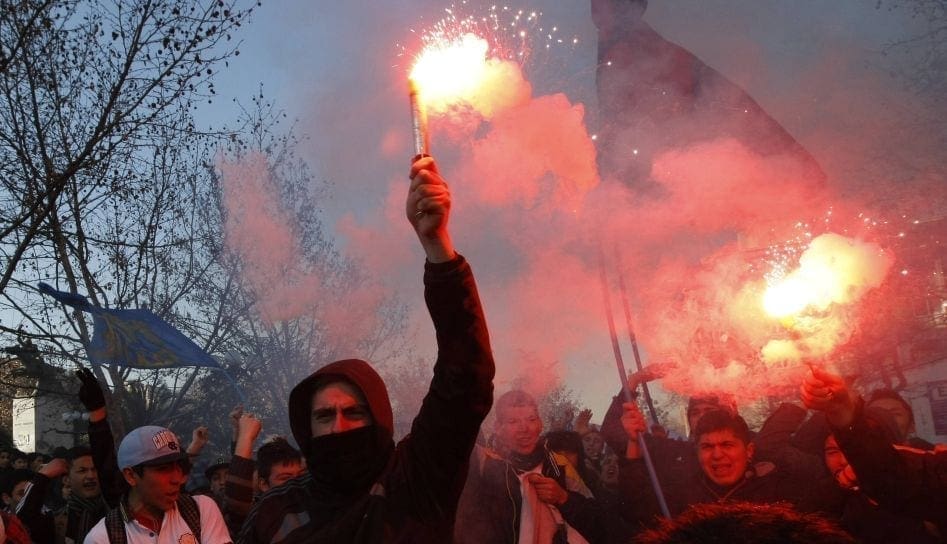Colleges across the country have increasingly become more resistant to freedom of thought, so it’s no surprise a recent survey found that one in every three students says it’s OK to use violence to shut down so-called hate speech.
According to a study carried out by the McLaughlin & Associates and sponsored by the William F. Buckley, Jr. Program at Yale, 53 percent of students report feeling “intimidated” when sharing their political beliefs while in class, while 54 percent claim their fear is associated with knowing their views conflict with the views shared by their colleagues.
About the same number of students also said most of their professors often share their political views in class, whether these subjects are related or not to the course.

The same study found nearly six in ten students believe schools should forbid people engaging in “hate speech” from speaking on campus, while 33 percent think physical violence should be used if a campus speaker uses hate speech during their presentation.
Despite these views, undergraduates have a hard time defining hate speech, making it completely plausible that many would defend the use of force against peaceful people who simply do not agree with their politics.
The dangerously high number of students who defend the use of violence to oppress speech shows us that the years of growing political bias among college professors and administrators are finally paying off. Now, students feel they are under pressure to subscribe to a particular political philosophy and, what’s worse, they feel schools are justified when they use force to remove an unwanted speaker.
The Suppression of Speech And Thought
As FEE’s Jay Bowen points out, the revolution of speech repression on campus is directly associated with the rise of political correctness. After all, college campuses were, not too long ago, the place where students went to have access to a real open market of ideas.
The 1960s free speech movement, for instance, started at the University of California, Berkeley, where now, speakers deemed offensive and “dangerous” are blocked from entering.
As more and more schools seek to shield students from the dangers of the open debate, Bowen contends, it’s only natural that seeing students defending colleges that pursue violence against those they dislike has become the norm.
Lauren Noble, the Buckley Program founder, and executive director said in a statement following the study that it’s “unfortunate that college campuses — which could be leaders in bringing people together around fundamental values — are just as polarized and divided as the rest of America.”
But perhaps, what’s even more troubling is to learn violence is seen as an option, whereas free men and women all know using force against someone merely expressing their views is nothing short of wrong.
It’s today’s culture, which embraces aggression as an answer, that has cornered us all, keeping us from being able to openly discuss our own views in public. And colleges are a major part of this cultural trend.

























